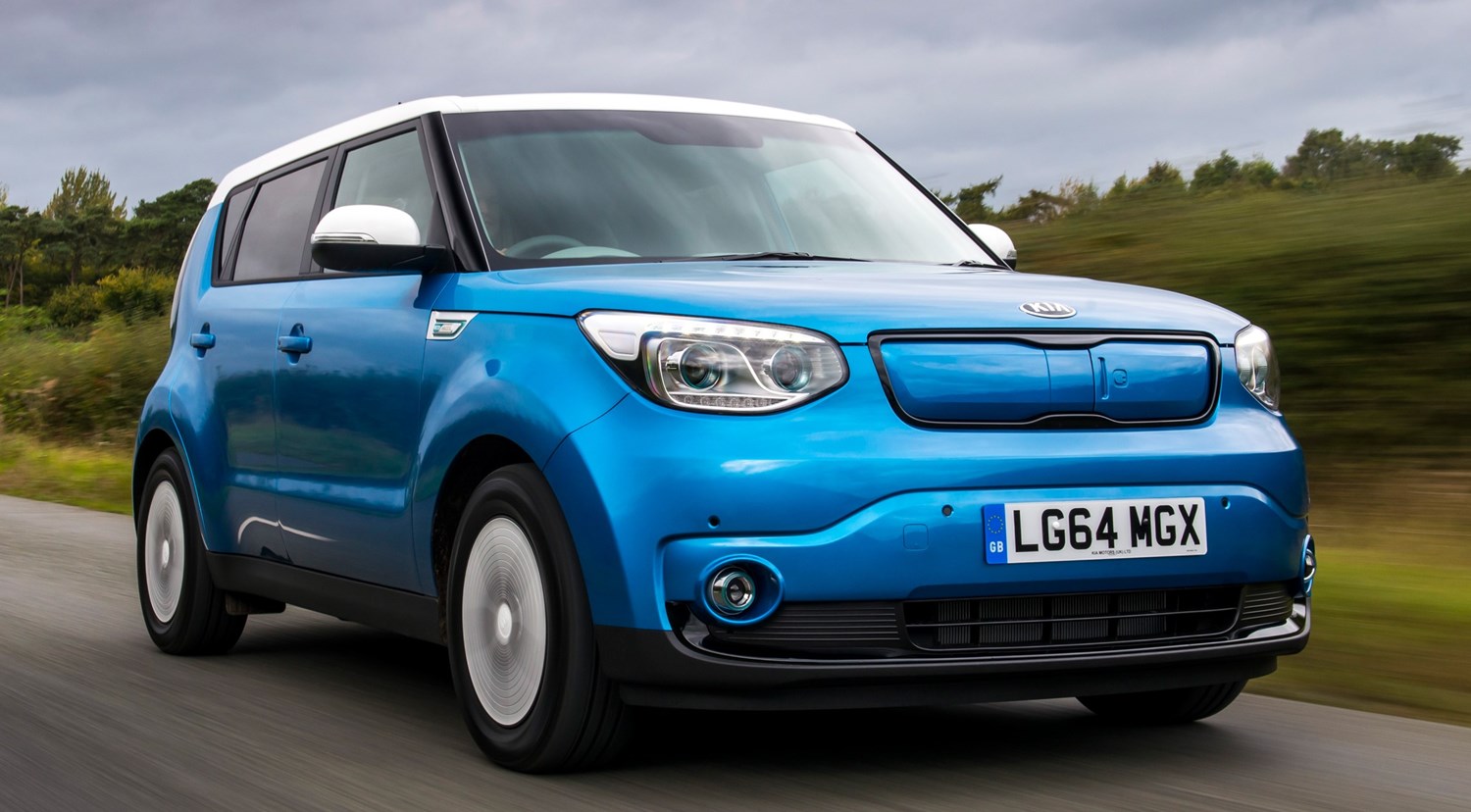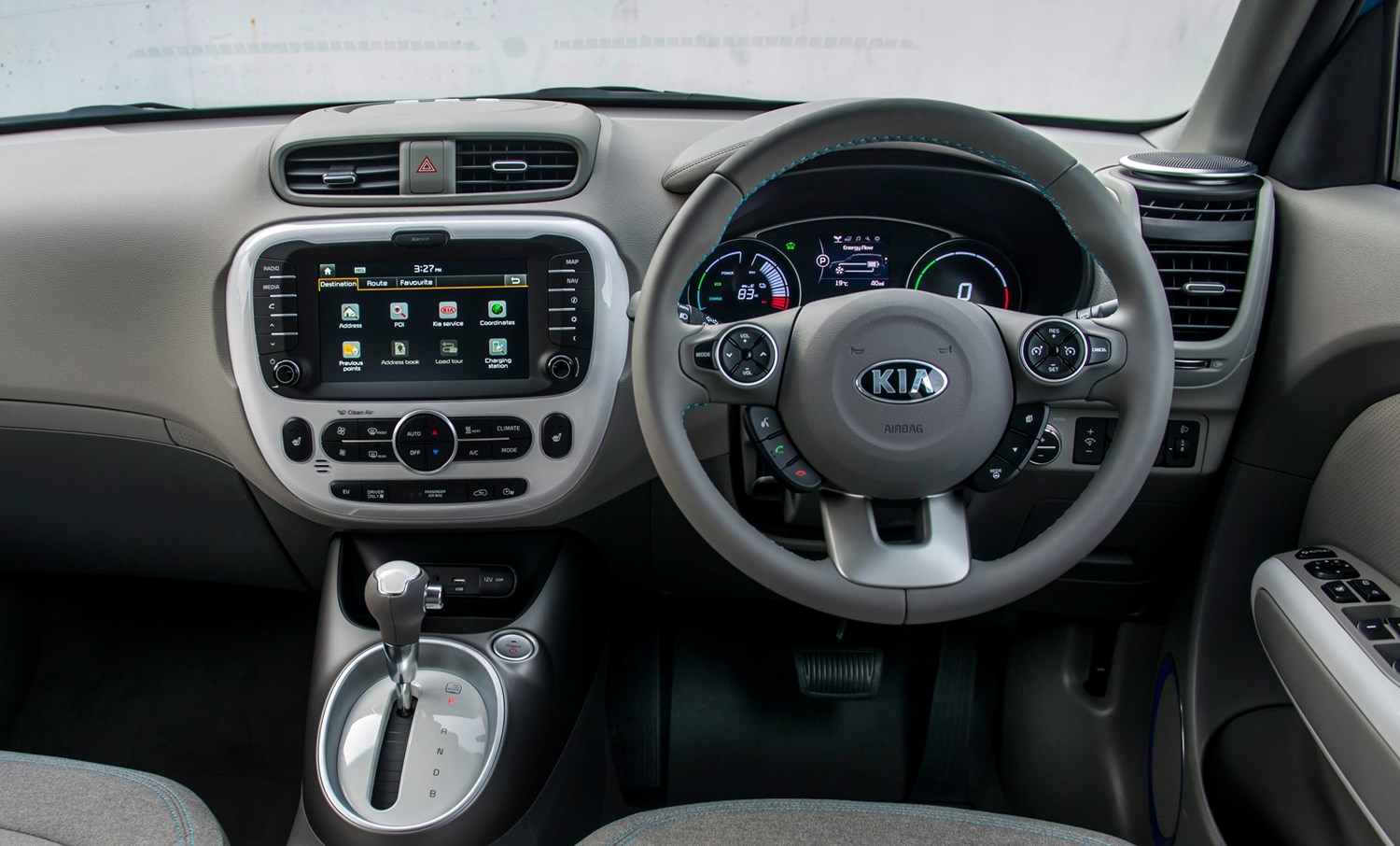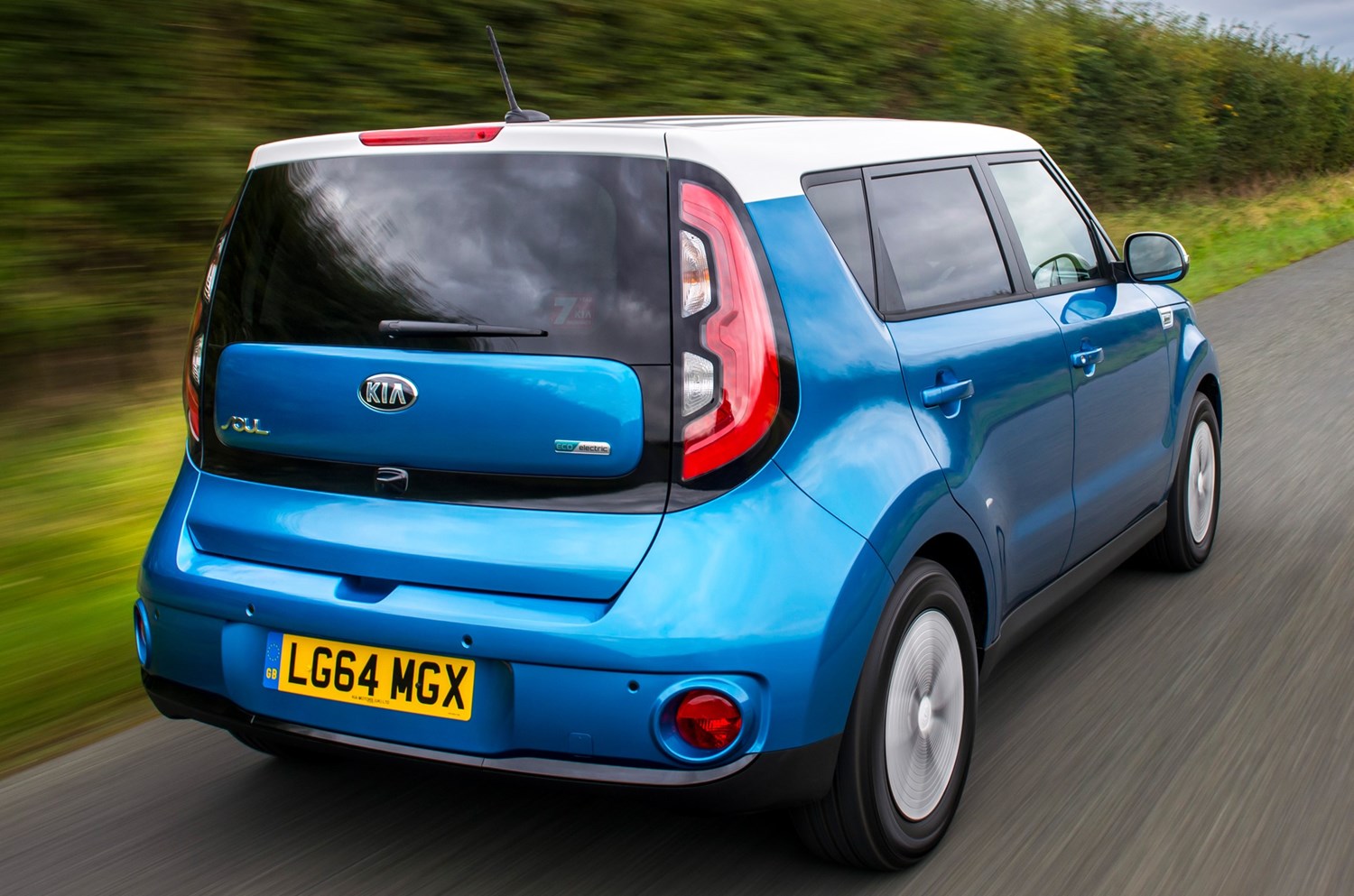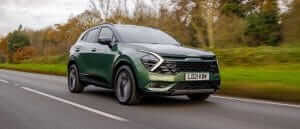Kia’s quirky Soul crossover/MPV has been on sale since 2009. However, it was 2015 when it first received the electric treatment with the creatively named Soul EV.
Based on the second-generation Soul, it was Kia’s first electric car, and has since remained a left-field choice since it first went on sale.
Latest model
The Soul EV is still a relatively new car, as little has changed in the three years since it came out.
The main difference came in 2017 with the updated Soul EV that boasted bigger batteries and optimised storage for them. The batteries can now hold 30kWh, up from 27kWh. This allows for an extra 23 miles of range between charge – meaning the range is now 155 miles - while the car is only 15kg heavier than before.
Value for money
The Soul EV is one of the most expensive cars on sale in this segment. Priced from £30,495 – even including the government’s electric car grant, it does look very expensive particularly when you compare it against cars such as the Nissan Leaf and Renault Zoe, which are both substantially cheaper.
You do get a good amount of standard equipment, though, with kit including satellite navigation, keyless entry and go, heated seats and steering wheel, a DAB radio and a reversing camera. This long list of equipment does help, in part, to justify the Soul EV’s high list price.
It makes far more sense to buy a used example. While there is not an excessive amount of choice on the used market, there are some. The Soul EV has been seen huge depreciation so far, so you are best off avoiding purchasing a new example unless you can secure a considerable discount off a new vehicle.
There are some fantastic examples for sale on the used market, with heft savings off the list price. We saw a late-registration 2017 model for sale with delivery miles for just £19,995 – which it makes it look affordable compared with rivals. In short, you would be crazy to buy a Soul EV at full list price when you consider the savings available on lightly used examples.
Looks and image
The Kia Soul - even in non-electric mode – is quite a quirky car. However, it is even more vibrant as an EV. With its white wheels and contrast-coloured roof, it certainly stands out. While it’s not exactly stylish, it certainly has far more flair than the Renault Zoe and Nissan Leaf have, for example.
It is easy to drive, too, and is really no different to drive than any petrol or diesel version. It’s very comfortable as well, and would make a good first venture into the electric car market. The instant torque from the electric motor also makes the Soul EV seem far quicker than its 0-60mph time of 10.8 seconds suggests. That said, the steering is disappointingly vague and artificial.
Inside, everything feels well-made from high-quality materials. The only slight disadvantage is that the modern underpinnings aren’t joined by a matching radical interior, as it looks rather middle-of-the-road, but this will no doubt appeal to some.
Thanks to its refined and comfy interior, it allows for a relaxed drive. It is never going to win any performance tests, but that is not what the Soul EV is about. The silence from the electric motors also adds to the refined feel of it.
Space and practicality
Interior space in the Soul EV is largely good. Its compact packaging makes it deceivingly practical inside, meaning there is enough room for four adults – although five might not be a squeeze.
The extra room taken up by the batteries does remove some practicality from the standard Soul, though. There is a little bit less legroom in the back, while the boot space has been reduced from 311 to 281 litres. Kia has added some extra underfloor storage, to help to negate the impact of the space taken up by the batteries.
Unlike many other electric versions of standard cars, the Soul EV has actually been tested by EuroNCAP. It performed well in categories such as adult and pedestrian protection, although was let down by average scores for its lack of safety assistance technologies and pedestrian protection. It remains a safe car, though, with a four-star overall rating.
You could quite easily use it as family car, too, as it comes with Isofix child seat mounts, and it features handy storage that would be very useful for family duties.
Power and range
Just one powertrain is available, a 109bhp electric motor and 30kWh lithium-ion polymer battery pack. It might sound a bit weedy, but it’s not as slow as it sounds thanks to a torque figure of 285Nm. Granted, it’s not going to win any speed records with a 0-60mph time of 11.0 seconds and a top speed of 90mph, but it’s not bad – especially when you consider that it weighs a hefty 1,565kg.
The updated Soul EV now boasts a range of 155 miles. Using a domestic power supply it can be charged in 11-14 hours, while if you use a wallbox or public charging, it should take around five hours to charge fully. The quickest charging time is when using a rapid charger - the batteries can be charged to 80 per cent of their capacity in 33 minutes.
Running costs
As the Soul EV is a fully electric vehicle, it is going to save you a considerable amount of money during your ownership on running costs.
You won’t pay for fuel (minus the minor electricity costs) or road tax, and you’ll be charged far less for using it as a company car than an equivalent petrol or diesel model.
The Soul EV sits in insurance group 19, similar to that of the Volkswagen e-Golf, although it is considerably higher than that of the Hyundai Ioniq Electric.
You do need to remember the initial extra you will pay for it, though, because of its high list price, so consider this when you are calculating the running costs.
Things to look out for
It’s difficult to gauge any problems from the Soul EV due to the limited number that have been sold. The fit and finish of the crossover has proved to be of a good quality, though, so few problems should arise from this. An electric car also has fewer moving parts than an internal combustion engine does, which could mean that there are even less things to go wrong.
You have added piece of mind thanks to Kia’s seven-year 100,000-mile warranty, too.
Rivals
There aren’t really any fully electric crossovers available, so in that way the Soul EV has a market to its own. However, many electric hatchbacks are available, including the Hyundai Ioniq, Nissan Leaf, Renault Zoe, BMW i3 and Volkswagen e-Golf, which are all worth considering if you are thinking of buying a Soul EV.
Trims explained
Just one Soul EV is available – and it costs £30,495 including the £4,500 government plug-in car grant.
It comes well-equipped with standard equipment including an eight-inch touchscreen with Apple CarPlay and Android Auto, a charge point locator and a reversing camera. You also get a leather steering wheel and gear selector as well as LED DRLs and brake lights., 16-inch alloy wheels and front and rear parking sensors.





